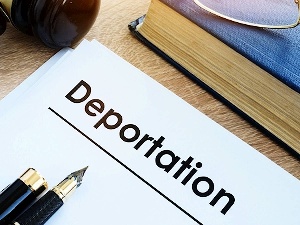- Home - News
- Elections 2024
- News Archive
- Crime & Punishment
- Politics
- Regional
- Editorial
- Health
- Ghanaians Abroad
- Tabloid
- Africa
- Religion
- Photo Archives
- Press Release
General News of Sunday, 20 April 2025
Source: www.ghanawebbers.com
Ghanaian students in US face visa, deportation threats
A wave of uncertainty is affecting U.S. university campuses. Ghanaian students are among those at risk. Reports indicate a troubling rise in visa revocations and deportation orders. Many international students, especially from Africa, are caught off guard.
Dozens of students from Ghana and Nigeria have received abrupt messages. U.S. immigration authorities inform them: "Your visa has been revoked." They must leave the country within seven days. This shift reflects a hardline approach under the Trump administration's second term.
For Ghanaian students on F-1 and J-1 visas, these documents once symbolized opportunity. Now, they bring anxiety instead of hope. Visa cancellations often occur without prior notice. Some students learn about their status only when approached by ICE officials.
One alarming case involves a Turkish doctoral student in Massachusetts. She was detained shortly after her visa was revoked, with no warning given. Authorities allege political links; her attorneys argue she advocated for Palestinian rights.
African students seem to be disproportionately affected by these changes. Reports show some faced visa revocation after attending peaceful rallies or minor legal issues like traffic violations. Over 100 African students are currently challenging vague accusations related to their visas.
Once a visa is revoked, appealing is rare for students. They must leave the country quickly or risk detention and deportation.
Ghanaian students should take precautions as U.S. immigration policies tighten. Experts recommend staying in contact with international student offices at schools. These offices can sometimes identify issues early on.
Students should avoid any legal trouble, even minor infractions like parking tickets or curfew violations. Public political expression requires careful consideration; peaceful activism may attract scrutiny now.
If you receive an immigration notice, seek legal help immediately without delay. Consult an immigration lawyer and notify your embassy right away.
Report any threats or arrests to the Ghana Embassy in Washington D.C., which can provide support and ensure due process is followed.
In Ghana, education advocates urge the Ministry of Foreign Affairs to strengthen support for citizens abroad. There are calls for embassies to increase outreach to high-risk students and clarify emergency channels.
Despite challenges, many Ghanaian students thrive in U.S institutions today. They contribute significantly in fields like engineering, medicine, and international policy but face a changed environment now.
Families back home who invested heavily in education must remain vigilant and informed during this time of uncertainty. Studying in the U.S remains valuable but requires increased awareness and preparedness moving forward.











